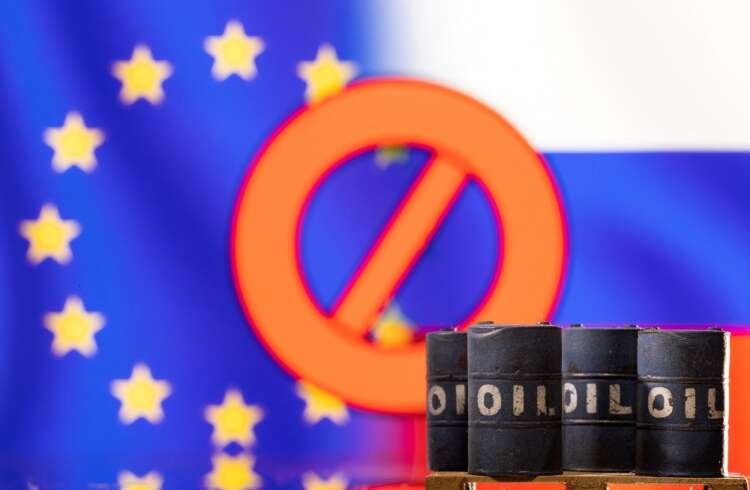EU tweaks Russia oil sanctions plan in bid to win over reluctant states – sources


By Francesco Guarascio and Robin Emmott
BRUSSELS (Reuters) -The European Commission has proposed changes to its planned embargo on Russian oil to give Hungary, Slovakia and the Czech Republic more time to prepare for the shift in their energy supplies, three EU sources said on Friday.
The EU executive set out the embargo this week as part of its toughest-yet package of sanctions against Russia over the conflict in Ukraine. But Hungary and other member states said they were worried about the impact on their own economies.
The tweaked proposal – which EU envoys discussed on Friday morning without reaching an agreement – would give the three countries help to upgrade their oil infrastructure, the sources said.
There would also be a three-month transition before banning EU shipping services from transporting Russian oil, instead of the initial one month – to address concerns raised by Greece, Malta and Cyprus about their shipping companies, one of the sources added.
More discussions were expected later on Friday and perhaps into the weekend, the sources added, speaking on condition of anonymity.
Diplomats said talks were complex but many expressed confidence that a compromise among all 27 EU governments could be reached before next week.
“AN OBJECTIVE PROBLEM”
Under the original proposal, most EU countries would have to stop buying Russian crude oil six months after adoption of the measures, and halt imports of refined oil products from Russia by the end of the year. Hungary and Slovakia were initially given until the end of 2023 to adapt.
Under the changes, Hungary and Slovakia would be able to buy Russian oil from pipelines until the end of 2024, and the Czech Republic could continue until June 2024, if it does not get oil via a pipeline from southern Europe earlier, the sources said.
Bulgaria had also asked for exemptions, if others obtained them, but was not offered concessions on deadlines, “because they don’t have a real point,” one official said. The other three countries who were granted more leeway “have an objective problem,” the official added.
One of the sources said that the extended deadlines were calculated on the likely construction times for pipeline upgrades. The official said Hungary and Slovakia accounted for only 6% of the EU’s oil imports from Russia, and the exemptions would not change the impact of the ban on the Russian economy.
Top EU diplomat Josep Borrell said on Friday he would call an extraordinary meeting of EU foreign affairs ministers next week if no deal was reached by the weekend.
Hungary’s Prime Minister, Viktor Orban, said earlier on Friday that Hungary would need five years and huge investments in its refineries and pipelines to transform its current system which gets about 65% of its oil from Russia.
One diplomat familiar with the talks among EU envoys in Brussels dismissed Orban’s comments as “mostly bluster”, describing instead a constructive atmosphere in the negotiations.
(Reporting by Francesco Guarascio @fraguarascio and Robin Emmott; Editing by Hugh Lawson and Andrew Heavens)
Oil infrastructure refers to the physical facilities and systems necessary for the extraction, processing, and transportation of oil.
A transition period is a set timeframe during which changes are implemented, allowing affected parties to adapt to new regulations or policies.
The European Commission is the executive branch of the European Union responsible for proposing legislation and implementing decisions.
Explore more articles in the Top Stories category











